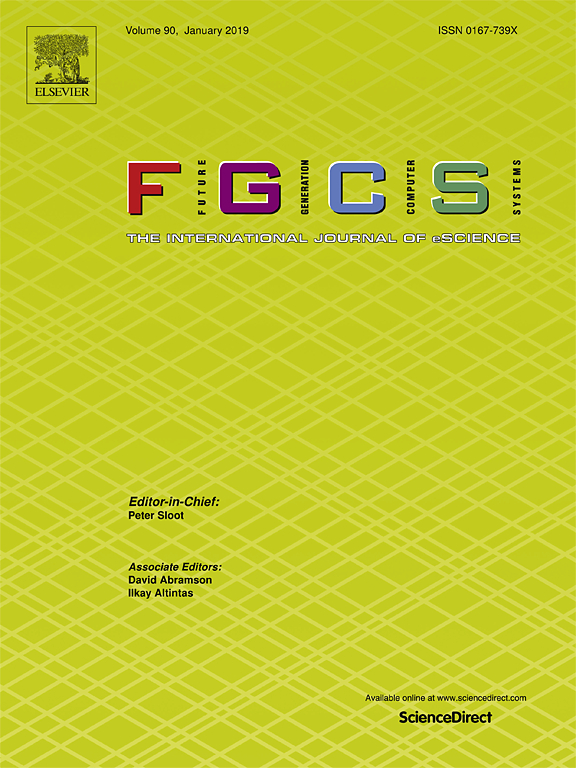Editorial Board
A highly efficient chain code for compression using an agent-based modeling simulation of territories in biological beavers
It’s about Thyme: On the design and implementation of a time-aware reactive storage system for pervasive edge computing environments
FLAS: A combination of proactive and reactive auto-scaling architecture for distributed services
Proactive, uncertainty-driven queries management at the edge
Using deep belief network to demote web spam
Causal and Δ-causal broadcast in opportunistic networks
On the optimality of Concurrent Container Clusters Scheduling over heterogeneous smart environments
Multi-modal aggression identification using Convolutional Neural Network and Binary Particle Swarm Optimization
Holistic thermal-aware workload management and infrastructure control for heterogeneous data centers using machine learning
Early detection of cyberbullying on social media networks
Programming framework and infrastructure for self-adaptation and optimized evolution method for microservice systems in cloud–edge environments
Scalable multi-channel dilated CNN–BiLSTM model with attention mechanism for Chinese textual sentiment analysis
Security and Energy-aware Collaborative Task Offloading in D2D communication
Performance evaluation of Hyperledger Fabric-enabled framework for pervasive peer-to-peer energy trading in smart Cyber–Physical Systems
Do-Care: A dynamic ontology reasoning based healthcare monitoring system
On unlinkability and denial of service attacks resilience of whistleblower platforms
Tracking sentiment towards news entities from Arabic news on social media
Multi-robot path planning in wireless sensor networks based on jump mechanism PSO and safety gap obstacle avoidance
Effects of hidden layer sizing on CNN fine-tuning
Building the Internet of Things platform for smart maternal healthcare services with wearable devices and cloud computing
Multi-channel, convolutional attention based neural model for automated diagnostic coding of unstructured patient discharge summaries
Future generation of service-oriented computing systems
A low-cost physical location discovery scheme for large-scale Internet of Things in smart city through joint use of vehicles and UAVs
Deflated reputation using multiplicative long short-term memory neural networks
Special issue on workflows in support of large-scale science
Intelligent Dynamic Malware Detection using Machine Learning in IP Reputation for Forensics Data Analytics
Efficient and reliable forensics using intelligent edge computing
DAD: A Distributed Anomaly Detection system using ensemble one-class statistical learning in edge networks
Generation of overlapping clusters constructing suitable graph for crime report analysis
DIDDOS: An approach for detection and identification of Distributed Denial of Service (DDoS) cyberattacks using Gated Recurrent Units (GRU)
Panoramic visual perception and identification of architectural cityscape elements in a virtual-reality environment
Image/video aesthetic quality management based on fusing 3D CNN and shallow features
Learning hierarchical face representation to enhance HCI among medical robots
Massive-scale carbon pollution control and biological fusion under big data context
Massive-scale graph-clustering-based data management based on multi-metrics
AI-guided resource allocation and rescue decision system for medical applications
Graph-CAT: Graph Co-Attention Networks via local and global attribute augmentations
Influence maximization in social graphs based on community structure and node coverage gain
Corrigendum to “CyberShip-IoT: A Dynamic and Adaptive SDN-Based Security Policy Enforcement Framework for Ships” [Future Gener. Comput. Syst. 100 (2019) 736–750]
Corrigendum to “Lightweight self-organising distributed monitoring of Fog infrastructures” [Future Gener. Comput. Syst. 114 (2020) 605–618]


